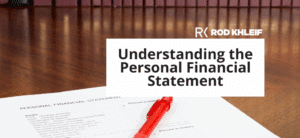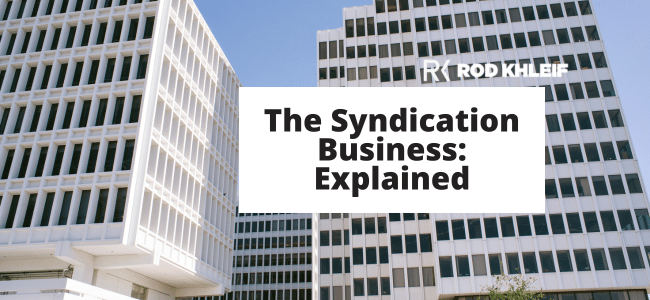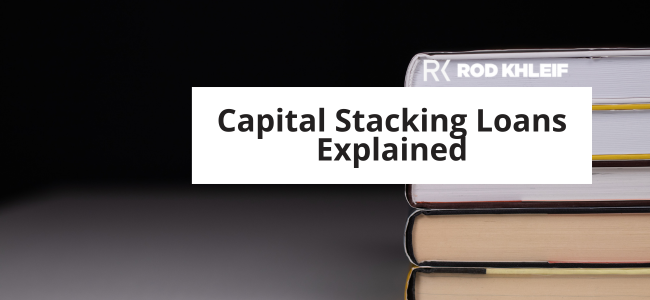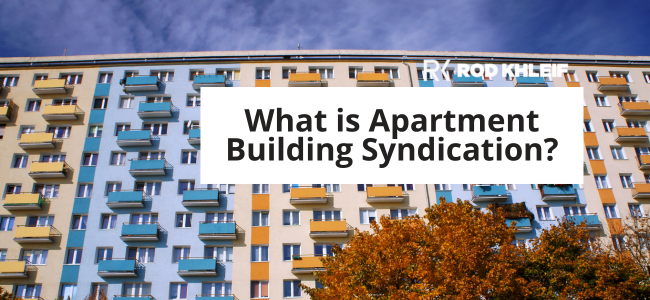Creating a positive landlord relationship with tenants is crucial for both parties. Whether you are a seasoned landlord or just entering the real estate business, these strategies can help enhance your understanding of the landlord-tenant connection.
In this article, we’ll discuss some practices to strengthen landlord and tenant relationships. By applying these strategies, you can achieve a more harmonious landlord and tenant relationship, benefiting you and your tenants.
Why Is the Landlord-Tenant Relationship Important?
The landlord-tenant relationship is a cornerstone of successful real estate investing. Building a positive connection with your tenants is vital for long-term success in the real estate industry.
Here are 5 key elements that highlight the significance of the landlord-tenant relationship.
1. Mutual Respect and Trust
The relationship between a landlord and tenant should be built on a foundation of mutual respect and trust. When tenants feel respected and valued, they are more likely to take better care of the property.
As a landlord, respecting your tenants creates a positive atmosphere and encourages open communication. This, in turn, can lead to smoother transactions and fewer disputes.
2. Clear Expectations and Agreement
Establishing clear expectations and agreements is fundamental to a healthy landlord-tenant relationship. This involves drafting a comprehensive lease agreement outlining both parties’ rights and responsibilities.
Ensuring that all terms and conditions are well-defined reduces the likelihood of misunderstandings and conflicts, fostering a more positive and cooperative relationship.
3. Proactive Problem-Solving
Instead of merely addressing issues as they arise, a proactive approach to problem-solving can be a game-changer. Anticipating potential problems and addressing them before they become major concerns can create a sense of security for tenants and foster goodwill.
4. Property Maintenance and Upkeep
A well-maintained property is a testament to a landlord’s commitment to their tenants. Regular property maintenance ensures the tenant’s comfort and safety and safeguards the landlord’s investment. A positive landlord-tenant connection involves delivering a well-maintained living space that tenants proudly call home.
5. Tenant Empowerment
Empowering tenants with the tools and resources they need to thrive in their rental property is a key aspect of the landlord-tenant relationship. This could include sharing educational materials about property care, offering resources for community involvement, and creating a sense of belonging in the neighborhood.
When tenants feel empowered and connected to their surroundings, it can lead to a more harmonious and mutually beneficial relationship.
5 Tenant Retention Strategies
Now that you understand why the landlord-tenant relationship is crucial, it’s time to delve into specific strategies to help you maintain a strong and positive connection with your tenants.
Here are 5 essential tenant retention strategies to keep your rental properties thriving and ensure your tenants are satisfied and eager to stay.
1. Communication and Conflict Resolution
Effective communication is the cornerstone of any successful landlord-tenant relationship. Open and honest communication is critical to maintaining a positive relationship with your tenants. A responsive landlord creates a sense of trust and reliability, which is crucial in the landlord and tenant relationship.
In any relationship, conflicts are bound to arise. When they do, approach them with patience and understanding.
2. Creating a Sense of Community
Building community within your rental property can significantly improve tenant retention. A strong sense of belonging encourages tenants to stay and even recommend your property to others. Additionally, providing a communal area where tenants can meet and socialize can contribute to a stronger sense of community and enhance the overall tenant experience.
3. Streamlined Maintenance Reporting
Rather than focusing solely on maintenance, it’s worth considering enhancing how tenants report issues. Implement a user-friendly online platform or mobile app that allows tenants to submit maintenance requests and track their progress easily. This streamlined process reduces the hassle for tenants and demonstrates your commitment to providing efficient and hassle-free service.
4. Flexible Lease Terms
Offering flexibility in lease terms can be a game-changer in tenant retention. For example, consider providing more extended lease options, like 18-month or 2-year leases. This gives stability to tenants and can make your property more appealing. Also, being open to discussing lease terms and renewal options can help in maintaining a positive landlord-tenant relationship.
5. Incentives and Rewards
Recognizing and rewarding your tenants can go a long way in solidifying the relationship between landlord and tenant. Offer incentives for renewing leases, such as a discount on the rent or a complimentary cleaning service. Small gestures like birthday cards or holiday gifts also show your appreciation and contribute to a positive tenant-landlord connection.
Best Property Management Practices for Increased Tenant Satisfaction
By now, it should be clear to you that the landlord-tenant relationship has a pivotal role in the success of any real estate venture. Here are some of the best practices that can help you maintain a strong and positive connection with your tenants.
1. Fair Rental Pricing and Policies
Setting fair and competitive rental prices and policies is crucial for maintaining a positive landlord-tenant relationship. Tenants appreciate when they feel they are getting good value for their rent. Be sure to research local market rates and adjust your pricing strategy accordingly.
Additionally, having clear and reasonable rental policies that are consistently applied will help tenants understand what is expected of them, reducing potential disputes.
2. Respect and Transparency
Respect is a two-way street. Landlords and tenants should treat each other respectfully, understanding that they have rights and responsibilities. Landlords should be transparent about their expectations, rental policies, and any changes in terms, while tenants should be equally transparent about their intentions and issues.
Being upfront about potential rent increases, maintenance schedules, or lease renewal plans fosters trust and reduces misunderstandings.
3. Personalized Tenant Services
Tailoring your services to meet the specific needs of your tenants can significantly enhance their satisfaction. For example, if you have a diverse group of tenants, offering amenities or services that cater to their preferences can make their stay more enjoyable.
Understanding your tenants’ unique characteristics and requirements can help you create a more positive and lasting relationship with them.
4. Regular Property Inspections
Regular inspections ensure the property’s condition and show tenants that you are committed to preserving a safe and comfortable living environment. Schedule routine inspections and communicate the purpose clearly to tenants.
5. Flexibility and Understanding
In the relationship between landlord and tenant, flexibility and understanding can go a long way in ensuring tenant satisfaction. Life circumstances can change, and tenants may require adjustments to their lease terms, such as lease extensions or early terminations.
Understanding and flexibility in such situations can make tenants feel valued and more likely to renew their lease or recommend your property to others.
5 Key Metrics and KPIs for Tenant Satisfaction
Many landlords must realize the significance of monitoring and improving the relationship with their tenants. Measuring specific metrics and KPIs that reflect tenant satisfaction is crucial to achieving this.
1. Communication Response Time
When tenants reach out with questions, concerns, or requests, they expect that you, as the landlord, will respond promptly. Therefore, tracking and improving your response time as a critical metric is crucial. Your responsiveness sends a clear message to your tenants, showing that you value their concerns and are dedicated to promptly addressing their needs.
2. Maintenance Request Resolution Time
Tenants expect that when issues arise in their rented property, they will be addressed efficiently. Monitoring the time it takes to resolve maintenance requests is essential as a key performance indicator. A shorter resolution time indicates your commitment to maintaining a comfortable living environment for your tenants.
3. Rent Payment Timeliness
Rent payments are a fundamental aspect of the relationship with your tenants. As a landlord, you should monitor and track the on-time payment of rent. Punctual rent payments ensure a steady cash flow and foster trust and cooperation in the tenant-landlord connection.
When tenants consistently pay their rent on time, it reflects positively on your management skills and the ability to maintain a harmonious relationship.
4. Tenant Feedback and Surveys
Implementing regular surveys to gather insights into their needs and concerns is a proactive approach. By doing so, you demonstrate your commitment to their well-being and gain valuable information to help you improve their living experience.
This aspect of the landlord’s relationship with tenants is a testament to your dedication to their comfort and satisfaction. It also encourages open communication and shows you’re invested in enjoying their stay.
5. Tenant Retention Rate
Tenant retention is the ultimate measure of a successful landlord-tenant relationship. It signifies whether your tenants are content with living arrangements and wish to stay longer. A high retention rate is a strong indicator of a positive landlord relationship with tenants.
It means that your tenants are satisfied with their accommodations and value their connection with you as their landlord. A high tenant retention rate is a win-win scenario for you and your tenants.
Conclusion
Your relationship with your tenants isn’t just about the transaction. It’s about building a genuine connection and the key to fostering trust and ensuring your rental property operates smoothly.
By applying the principles we mentioned in the article, you can create a relationship with tenants rooted in understanding and empathy, ultimately leading to harmonious and prosperous cooperation.
Remember, a strong landlord-tenant relationship enriches your investment and creates a sense of community and shared success that benefits all parties involved.












